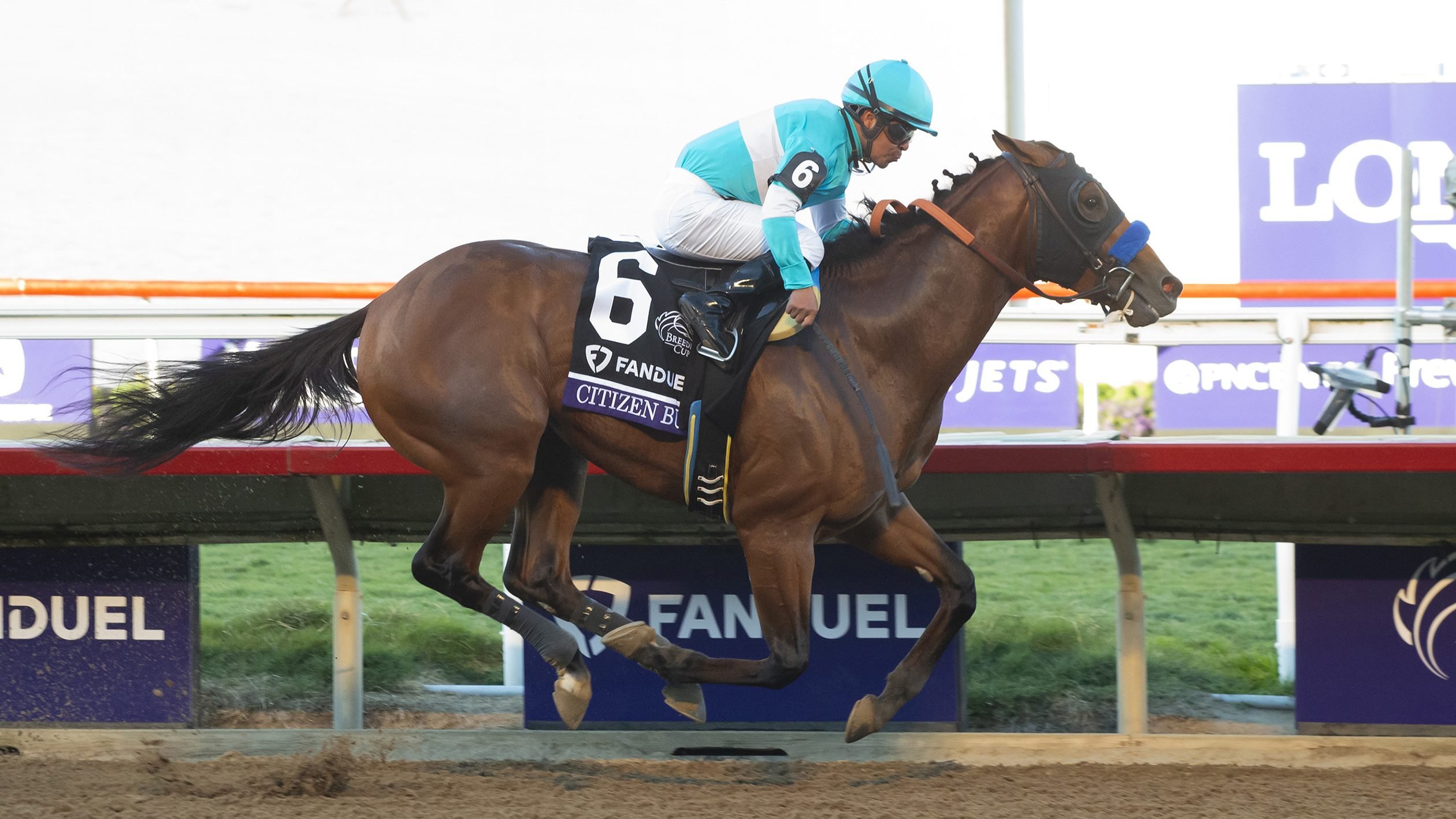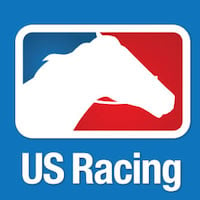

The $2 million Breeders’ Cup Juvenile (G1) is one of the seven original Breeders’ Cup races contested at the inaugural world championships event in 1984. The 1 1/16-mile main track test is more often than not the predictor of who will win the Eclipse Award for the division and also seals the winner’s status as the early favorite for the following year’s Kentucky Derby (G1).
Below, you can check the complete race card for the day:
| Race No. | Race Name | Post Time ET |
|---|---|---|
| 1 | The Pacific Shore (Allowance) | 2:35pm |
| 2 | The Thoroughbred Aftercare Alliance Stakes | 3:10pm |
| 3 | Golden State Juvenile Fillies Stakes | 3:45pm |
| 4 | Senator Ken Maddy Stakes (L) | 4:25pm |
| 5 | Golden State Juvenile Stakes | 5:05pm |
| 6 | Breeders’ Cup Juvenile Turf Sprint (G1) | 5:45pm |
| 7 | Breeders’ Cup Juvenile Fillies (G1) | 6:25pm |
| 8 | Breeders’ Cup Juvenile Fillies Turf (G1) | 7:05pm |
| 9 | Breeders’ Cup Juvenile (G1) | 7:45pm |
| 10 | Breeders’ Cup Juvenile Turf (G1) | 8:25pm |
Chief’s Crown, trained by Roger Laurin, son of Secretariat’s trainer Lucien, won the first Breeders’ Cup Juvenile at Hollywood Park under jockey Don Macbeth. He was the first winner of the race to be crowned champion 2-year-old, and since then, 33 more (from 41 runnings) have also earned the honor.
Hall of Fame trainer Bob Baffert’s Citizen Bull was victorious a year ago to give him his sixth winner in the race, one more than the late D. Wayne Lukas. Retired jockeys Laffit Pincay, Jr., Jerry Bailey, and Mike Smith each rode three winners throughout their Hall of Fame careers and still lead all riders.
The last juvenile to be named Horse of the Year and the first since Secretariat in 1972 was Favorite Trick, who won this race in 1997 at Hollywood Park before earning the year-end honor. He was undefeated in all eight starts as a 2-year-old for owner Joseph LaCombe and trainer Patrick Byrne.
One of the most famous Breeders’ Cup Juvenile performances was Arazi’s run in 1991, who launched a powerful late run from the back of the pack in the early going to storm home a five-length winner.
So far, only two Breeders’ Cup Juveniles have won under the Twin Spires in the main event on the first Saturday in May – Street Sense (2006, 2007) and Nyquist (2014, 2015).
The fastest running at the current distance is the 1:40.94 that Midshipman clocked when he won at Santa Anita in 2008.
1991 – Arazi, under jockey Patrick Valenzuela for trainer Francois Boutin, rallied from last in a 14-horse field, surging five lengths clear in his dirt debut to win by daylight over future Grade 1 star Bertrando. Time: 1:44.78. The French-raced phenom's effortless, wide-sweeping charge from 13th — often called the “most spectacular Breeders' Cup performance ever” — electrified the crowd and marked just the second European win in the race's history.
1986 – Capote, who was ridden by Laffit Pincay, Jr. and trained by D. Wayne Lukas, showed the way from the gate and held off Qualify in a furious late bid to win by 2¼ lengths for a final time of 1:43.40. Capote's rivals included three future champions: Kentucky Derby/Horse of the Year winner Alysheba, Belmont Stakes hero Bet Twice and Breeders' Cup Sprint champ Gulch.
2006 – Street Sense stormed from 13th in a sloppy mess, demolishing the field by a staggering 10 lengths for jockey Calvin Borel and trainer Carl Nafzger — the largest margin in race history. Time: 1:42.59. The colt shattered the "Juvenile Jinx" myth by posting the first-ever Juvenile-to-Kentucky Derby double the next year.
1994 – The favored Timber Country ground home by a neck in a blanket finish, getting past the European import Eltish to win by two lengths, stopping the clock at 1:44.55. It was the first Juvenile win to produce a Triple Crown race victor, as Timber Country returned to take the 1995 Preakness Stakes.
2015 – Despite a horrible break and bumping with rivals for the first few jumps, Nyquist pressed the pace and kicked away by 1¾ lengths, staying perfect in his first eight starts. Under jockey Mario Gutierrez, he finished up in 1:43.79 over a fast track at Keeneland. He became just the second Juvenile hero to conquer the Kentucky Derby the following year.
2020 – The Brad Cox-trained Essential Quality provided a bright spot in an otherwise dark time during the COVID-19 pandemic. He settled off a hot early pace and unleashed a devastating stretch run to win by three-quarters of a length over 94-1 chance Hot Rod Charlie. Time: 1:44.25. He capped his 2-year-old season with the Eclipse Award and won the Belmont Stakes the following year.
Thirteen of the first 41 editions have been won by the betting favorite. So, favorites win nearly 32% of the time, and if they don’t cross the wire first, many complete exactas and trifectas.
However, half of the winners in the last 20 years went off at double-digit odds (10-1 or higher). This aligns with the race's mild reputation for upsets, particularly at Southern California tracks like Santa Anita and Del Mar, where eight of those 10 occurred. The Juvenile is notoriously unpredictable, with only five favorites winning over the same period.
Exactas have often returned over $100 for a $2 wager in recent years. Through 2024, the average exacta in the Juvenile was $219.62.
2019 -- Storm the Court won at huge odds (45.90-1), delivering a very large payout on a $2 win bet.
2023 –Fierceness won at $35 for a $2 bet. Exacta and trifecta payoffs were also sizable.
2024 – Citizen Bull won, paying $33.80 for a $2 win bet.
Don’t dismiss long shots; upsets happen regularly. If the favorite looks vulnerable (due to prep race, pace, etc.), value may lie elsewhere.
Prep races matter. Strong performances in key 2-year-old stakes leading up to the Juvenile (e.g., the American Pharoah Stakes, Breeders’ Futurity, Champagne Stakes) are often seen among winners.
Pace structure. A fast early pace often creates opportunities for closers or horses positioned a bit off the pace. Conversely, if a horse can dictate a reasonable pace, it may hold that advantage to the wire. Speed/early pace horses tend to have an advantage. Gate-to-wire or pressing the pace types are most often successful. Several recent winners were on or near the lead early or pressed the pace. In 2024, Citizen Bull went to the front. In 2023, Fierceness pressed the pace and prevailed.
Weather, track bias, and surface also matter.
Exactas and trifectas tend to offer outsized value when longshots hit top positions. Because favorites win only 30-35% of the time, spreading exotics while giving some respect to logical favorites can be helpful.


The writing team at US Racing is comprised of both full-time and part-time contributors with expertise in various aspects of the Sport of Kings.























